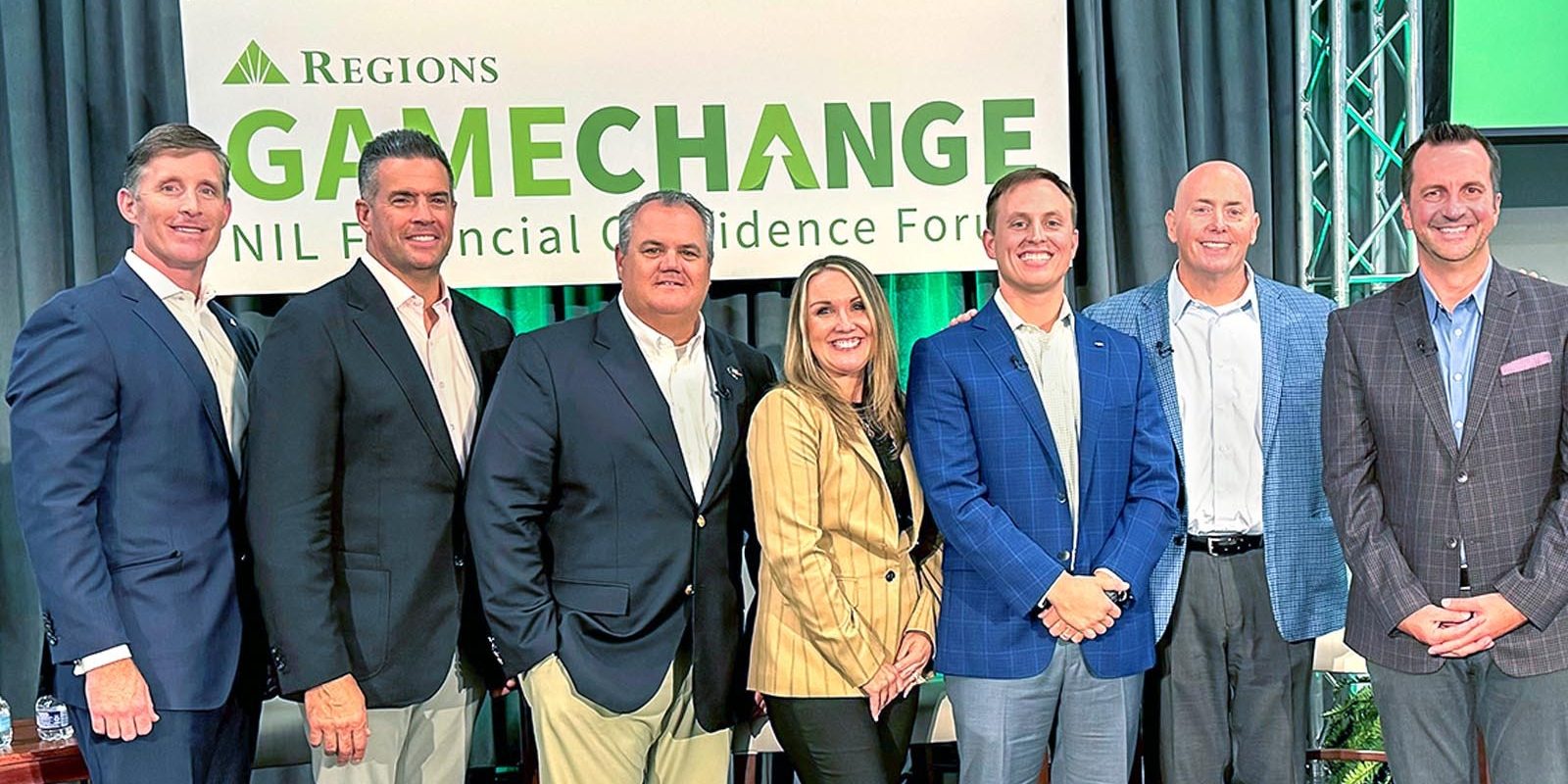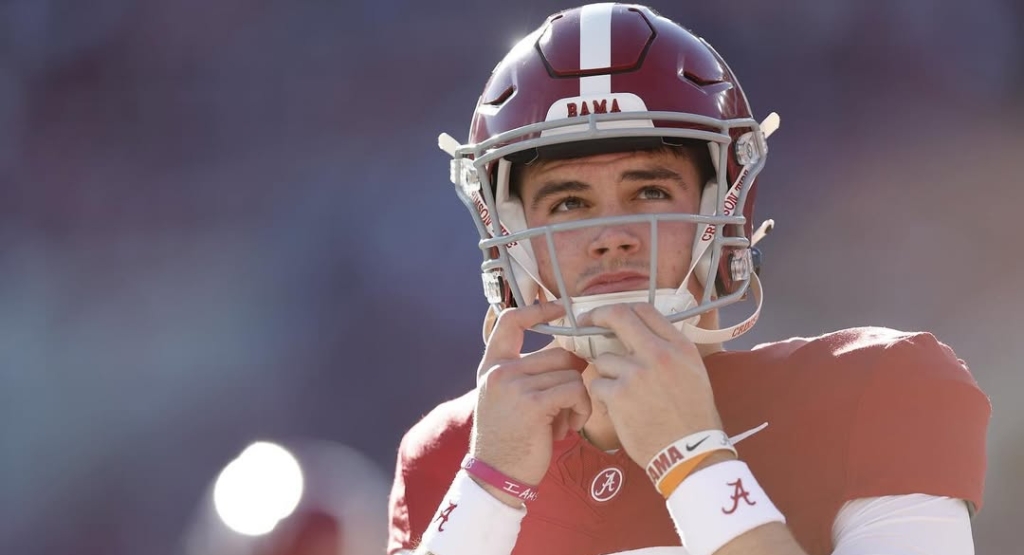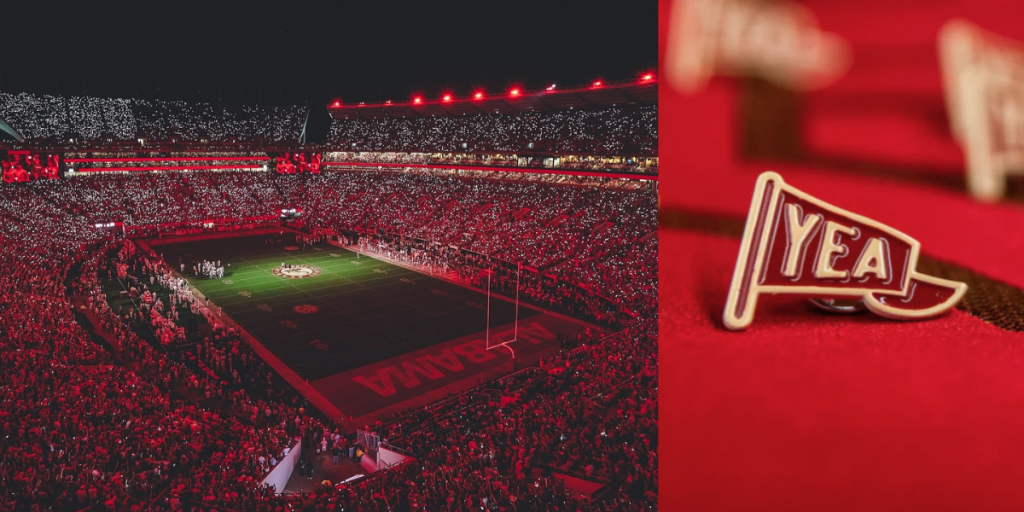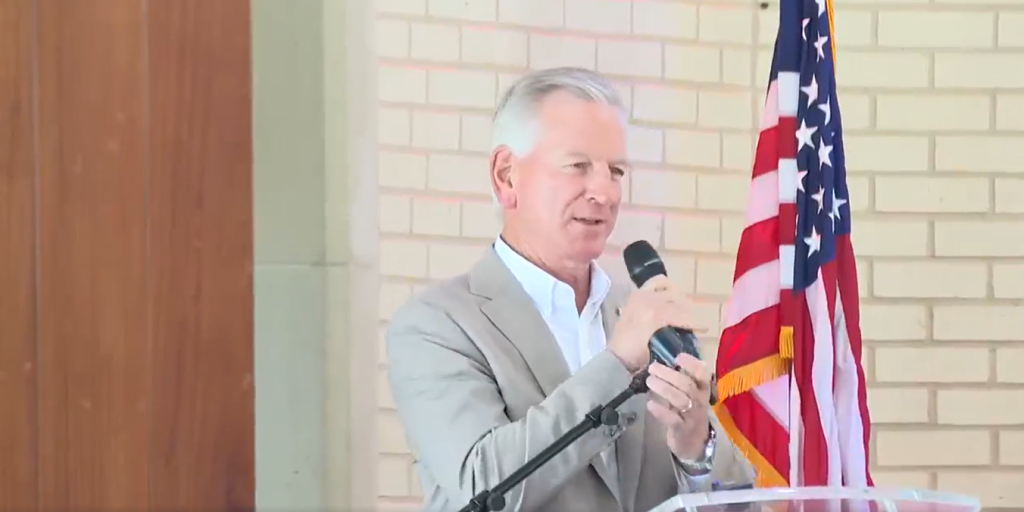Rich McGlynn saw the change coming to college athletics 14 years ago, long before Name, Image and Likeness (or NIL) was widely known.
McGlynn is the executive deputy athletic director at Auburn University. Back in 2010, Auburn shocked the world by winning the college football national title behind a record-setting, Heisman Trophy-winning quarterback.
As all things related to team – and especially the quarterback – sold like wildfire, McGlynn recognized the unfairness of excluding student-athletes from the financial windfall.
“All those No. 2 jerseys sold from having the best player on the best team in the country,” McGlynn told an audience at the Regions Center in downtown Birmingham, Alabama.
Student-athletes from Birmingham universities filled the seats and thousands more watched livestream feeds for the panel discussion, Regions Game Change: an NIL Financial Confidence Forum.
Ryan Brown, host of “The Next Round” and ABC 33/40’s The Zone served as moderator for the evening, featuring two lively discussion segments. The first one, “How NIL is Affecting College Athletics and Athletes” featured McGlynn, American Athletic Conference Commissioner Tim Pernetti and John Jordan, Regions’ head of Retail Banking.
Student-athletes attending in person or watching online participated by texting questions to the group.
Make no mistake, NIL is a definite game-changer. It has changed the business model of college athletics and created uncertainty about what’s next. But at the core of NIL is the opportunity for student-athletes to be rewarded for their hard work and their contributions to their school’s success.
“We’re seeing an impact on the conference level and on the national level,” said Pernetti, a former football player at Rutgers. “What I’d like to tell you, it’s way overdue.”
Pernetti said athletic programs across the country are scrambling to modernize to stay competitive in the new world of college athletics. But at the center, Pernetti said, is remembering who you serve: student-athletes.
“You’re finally being recognized for who you are,” Pernetti said.
With this new landscape comes new opportunities, but student-athletes, the panelists argued, also need to be aware of the challenges and risks with NIL and to be careful about offers that come their way.
“Most times, a company writes a contract in favor of the company,” McGlynn said. Before you sign someone, seek help. Otherwise, “Are you signing your rights for the rest of your life?”
“You are coming into opportunities to make money, just like you will after you graduate,” Jordan said. “There are a lot of financial institutions out there and a lot of financial education. Learn how to protect yourself.”
‘A 5-Year Window’
As each panelist provided insight on NIL, each returned to another common bond between student-athletes: the incredible opportunity provided to them through the scholarship, years of eligibility, and the resources that universities provide to them. They offered additional insight from their own experience in navigating turbulent NIL waters.
- Values matter – McGlynn said look for opportunities that match your beliefs. “Don’t take money because it’s in front of you. Make sure your values align with their values.”
- Look out for yourself – Pernetti said, “You need to surround yourself with people who understand this space.” He and McGlynn pointed out that much of the help, including someone to look over contracts, is often available through a school’s athletic department.
- Remember, the time is now – Most student-athletes aren’t going pro, McGlynn pointed out. “We want out students to understand this and take advantage of this 5-year window (of collegiate eligibility).”
- Schools must be committed to help – In the AAC, “we’re asking our schools to invest at a minimum level,” Pernetti said, adding that “this is one of the most challenging periods in college athletics.”
- Recognize these opportunities have long-term value – Jordan pointed to the need for financial education to manage finances long term, as well as advice, guidance and education. “You need advice, you need help, and you need a plan.”

‘Start Building Your Network’
At Auburn, the athletic department is taking a comprehensive approach to helping student-athletes.
“We come to work every day trying to figure out how we can maximize opportunities for our student-athletes,” McGlynn said. “But this is all new.”
McGlynn said that no matter where athletes attend school, there is help within the athletic department.
“Someone’s thinking about NIL, they’re thinking about marketing,” McGlynn said. “At Auburn, we try to find the connectors, then connect them with our student-athletes.”
Pernetti said that in the business world, the first step is to make connections to further your career. That should start the minute athletes step on campus.
“The mistake we make is we wait too long,” Pernetti said. “Start building your network. On game day, introduce yourself to alumni. They want to help.”
Years ago, that was a no-no. But in the new world of NIL, alums are allowed to help student-athletes. And fans make financial contributions through collectives and advertising.
Finally, McGlynn said, take your experience through the ups and downs of athletics and use it to your advantage.
“For whatever reason, people are scared to fail,” McGlynn said. “But as a student-athlete, you fail every day (at practice). The fact that you are willing to fall down and get back up is a gift that will carry you throughout your life.”
Courtesy of Doing More Today.













